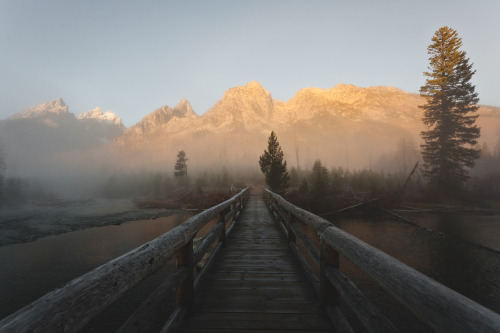Wild-thingslayhere - Just Aesthetic

More Posts from Wild-thingslayhere and Others
As to whether the Gavle Goat's consumption should be seen as a good omen or a bad omen, I'd say good. Traditionally the Yule goat is made of straw from the final harvest and as a talisman against hard times, and there are unproven theories that its shape is inspired by Thor's goats, who are constantly killed, eaten, and reborn to provide endless meat for Thor and whatever guests he entertains. Therefore, its use by birds as a food store and safe harbor is an affirmation of its original purpose and truly in the Christmas spirit of generosity in lean times. What's more, the birds eating it seems to be have been the one outcome to unite both goat burners and goat keepers, as they have decided not to scare the birds away from their safe harbor and not to harm the goat, a decision that has been universally lauded.
As omens go, this one's all positive: safety, plenty, and unity between previous ideological opponents through a creative third solution built on shared values (birds being fed and sheltered is a good thing). May more birds find their way to the Gavle Goat next year.
Gävlebocken being devoured by birds is incredible. There’s a whole creation/destruction mythos around this giant hay goat, a constant conflict between burning the goat and protecting it. And this year, it’s (unintentional?) use of hay with seeds has turned it into a birdie buffet. Being torn apart for food is simultaneous creation and destruction. I don’t reeeaaallly believe in omens (or do I?) but I wonder what kind this could be.
And there’s a white raven in Anchorage, which is having its snowiest winter ever, so very interesting winter for birds.


It’s official!

Look at dem bones
Death from above
Devour ye gods
In death she gave life
I'd sell my soul, and tell the being I'm selling it to to make sure no one buys that house or the land off the family, it never gets destroyed and never falls into disrepair. Then I'd write a will saying whoever I deem most responsible to take care of the house gets it, and write in it that they better make the fuck sure that when they write their will the most responsible person after them gets it.
Then, and only once all that has been established, will I sell my life to another being to make sure that the family doesn't abandon it and make sure no malicious spirits can stay in the house more than 7 years.
now that i’m older and understand how absolutely fucked the housing market is, all those horror movies that take place in nice houses where the family refuses to leave make sense. if i had a 4,000sqft vintage home you’d need to kill me before i ever moved out as well. fuck the ghost. charge it rent.
Jack-o'-lanterns have such a grab bag of lore, i love it
Fire, of course, has a long history of offering protection from evil forces. During the Celtic festival of Samhain (from which many Halloween traditions originate), the veil between worlds was considered thin, and ritual bonfires reminded the spooks to stay on their side of the lane.
Many a lantern has protected the lonely traveler on a dark moonless night. But lanterns can be dangerous too—especially the supernatural ones. in certain folklore 'jack-o'-lantern' was another name for will-o'-the-wisps, atmospheric ghost lights (or as legend has it, lost souls) that appear above bogs and lure unwise wanderers into sinkholes.
Then there's the 18th cent Irish folktale of Stingy Jack, a mischievous fellow who tricked the Devil twice, exacting a promise that hell would never claim his soul. So Jack goes on his cheerful way, and dies (as humans are prone to do), and ends up at the pearly gates. Now Heaven, it turns out, doesn't want a damn thing to do with him. So Jack jaunts on down and goes knocking on the gates of hell—only to have Satan slam the door in his face! How this leads to Stingy Jack being doomed to wander the earth carrying a hollowed out rutabaga lit by an ember of the flames of hell, I couldn't tell you. But that is how the story goes.

Whether the legend of Stingy Jack inspired or fueled or was created-by the gourd-carving practice, by the 19th cent, Irish, Scottish, and Welsh alike were annually carving jack-o'-lanterns out of turnips & rutabaga & beets & potatoes, and lighting them up to ward off Jack and other wandering spirits. Immigrants carried the tradition to North America, where pumpkins were indigenous and much easier to carve.
And so the modern Jack-o'-Lantern was born!

Not that gourd lanterns were anything new. Metalwork was expensive, after all, and gourds worked as-well-as and better-than-most crops when it came to carving a poor farmer's lantern.
As for carving human faces into vegetables, that supposedly goes back thousands of years in certain Celtic cultures. It may even have evolved from head veneration, or been used to represent the severed skulls of enemies defeated in battle. Or maybe not! Like many human traditions, jack-o'-lanterns evolved over multiple eras and cultures and regions, in some ways we can trace and others we can only guess at. But at the end of the day, it makes a damn good story, and a spooky way to celebrate—which is as good a reason as any (and a better reason than most!) to keep a tradition going.
In conclusion: happy spooky season, and remind me to tell yall about plastered human skulls one of these days 🎃
srcs 1, 2, 3

Expressive Eagle


More golden willow leaves etched in chilly frost: Sylvan Lake Series
(c) riverwindphotography, September 2023
I feel. So dumb.

THIS is where the Caribbean is.
For my WHOLE LIFE(admittedly not that long) up to this point, THIS is where I thought it was

Damnit
-
 fizzyxcustard liked this · 3 weeks ago
fizzyxcustard liked this · 3 weeks ago -
 rosecochonnetduprintemps reblogged this · 3 weeks ago
rosecochonnetduprintemps reblogged this · 3 weeks ago -
 txztxz3 reblogged this · 4 weeks ago
txztxz3 reblogged this · 4 weeks ago -
 itziarsmind reblogged this · 4 weeks ago
itziarsmind reblogged this · 4 weeks ago -
 breakdown-voltage liked this · 1 month ago
breakdown-voltage liked this · 1 month ago -
 shannybangbang reblogged this · 1 month ago
shannybangbang reblogged this · 1 month ago -
 mudd1994 reblogged this · 1 month ago
mudd1994 reblogged this · 1 month ago -
 volpil reblogged this · 1 month ago
volpil reblogged this · 1 month ago -
 theonewhofinallyletgo reblogged this · 1 month ago
theonewhofinallyletgo reblogged this · 1 month ago -
 that-texas-belle reblogged this · 1 month ago
that-texas-belle reblogged this · 1 month ago -
 tattoovonbeardy reblogged this · 1 month ago
tattoovonbeardy reblogged this · 1 month ago -
 unicornkittyxp reblogged this · 1 month ago
unicornkittyxp reblogged this · 1 month ago -
 holographicsights reblogged this · 1 month ago
holographicsights reblogged this · 1 month ago -
 masterwayne51 reblogged this · 1 month ago
masterwayne51 reblogged this · 1 month ago -
 pr3tty-littl3-poison reblogged this · 1 month ago
pr3tty-littl3-poison reblogged this · 1 month ago -
 leonorthoughts reblogged this · 1 month ago
leonorthoughts reblogged this · 1 month ago -
 come-back-to-yourself reblogged this · 1 month ago
come-back-to-yourself reblogged this · 1 month ago -
 my-tormented-soul reblogged this · 1 month ago
my-tormented-soul reblogged this · 1 month ago -
 adventuretolkienlover liked this · 1 month ago
adventuretolkienlover liked this · 1 month ago -
 ana-blogss liked this · 1 month ago
ana-blogss liked this · 1 month ago -
 andymoss liked this · 1 month ago
andymoss liked this · 1 month ago -
 withoutgrievance reblogged this · 1 month ago
withoutgrievance reblogged this · 1 month ago -
 hazymind reblogged this · 1 month ago
hazymind reblogged this · 1 month ago -
 gelfling-gxrl liked this · 1 month ago
gelfling-gxrl liked this · 1 month ago -
 ecoe-i liked this · 1 month ago
ecoe-i liked this · 1 month ago -
 himmelfrieren reblogged this · 1 month ago
himmelfrieren reblogged this · 1 month ago -
 himmelfrieren liked this · 1 month ago
himmelfrieren liked this · 1 month ago -
 david-71 liked this · 1 month ago
david-71 liked this · 1 month ago -
 daggeredd1ary reblogged this · 1 month ago
daggeredd1ary reblogged this · 1 month ago -
 mafaldinablabla liked this · 1 month ago
mafaldinablabla liked this · 1 month ago -
 im-a--golden--god reblogged this · 1 month ago
im-a--golden--god reblogged this · 1 month ago -
 im-a--golden--god liked this · 1 month ago
im-a--golden--god liked this · 1 month ago -
 the-empty-walls reblogged this · 1 month ago
the-empty-walls reblogged this · 1 month ago -
 the-empty-walls liked this · 1 month ago
the-empty-walls liked this · 1 month ago -
 pretty-boi-satan liked this · 1 month ago
pretty-boi-satan liked this · 1 month ago -
 ordinariamentedisordinato reblogged this · 1 month ago
ordinariamentedisordinato reblogged this · 1 month ago -
 ordinariamentedisordinato liked this · 1 month ago
ordinariamentedisordinato liked this · 1 month ago -
 nahufragio reblogged this · 1 month ago
nahufragio reblogged this · 1 month ago -
 nahufragio liked this · 1 month ago
nahufragio liked this · 1 month ago -
 zongam reblogged this · 1 month ago
zongam reblogged this · 1 month ago -
 moonlight-pisces liked this · 1 month ago
moonlight-pisces liked this · 1 month ago -
 mantamaya reblogged this · 1 month ago
mantamaya reblogged this · 1 month ago -
 delusionallytwistd reblogged this · 1 month ago
delusionallytwistd reblogged this · 1 month ago -
 bloody reblogged this · 1 month ago
bloody reblogged this · 1 month ago -
 rarelyfoundrare liked this · 1 month ago
rarelyfoundrare liked this · 1 month ago -
 takemetownderlnd reblogged this · 1 month ago
takemetownderlnd reblogged this · 1 month ago -
 aspen-and-ivy reblogged this · 1 month ago
aspen-and-ivy reblogged this · 1 month ago

You may see memes/random things pop up occasionally, or things about my life irl Ash They/Them oh, and I write/do art sometimes
296 posts

